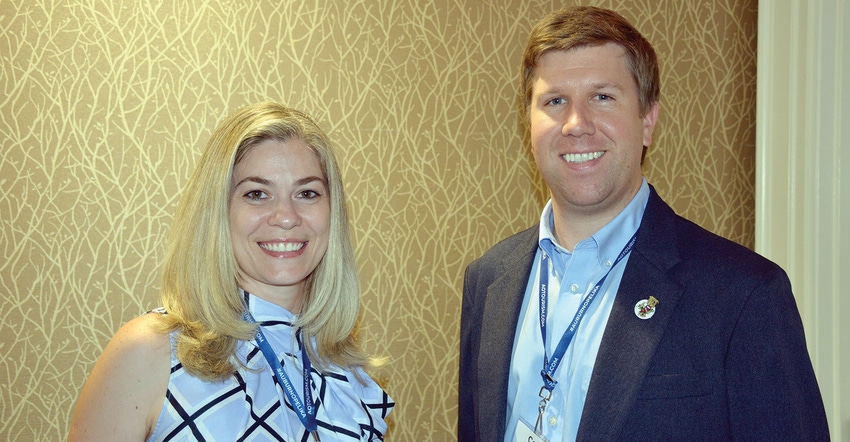
In the presidential address, his final responsibility as President of the American Peanut Research and Education Society, Rick Brandenburg challenged APRES members to work vigorously to counter the incessant chatter of misinformation streaming from social media.
He also urged his colleagues to embrace and support cooperation and information exchange with foreign research partners. And he asked each APRES member, and especially those who teach, to “be the person who makes a difference in a young person’s life. Encourage young people to contribute to agriculture.”
To that last point, Brandenburg, speaking by Skype as he convalesced from a recent illness in his North Carolina home, referred to a science teacher he met as a seventh grader and who encouraged him and aided his interest in science.
“All of us professors come across a lot of young people,” he said.
He pointed to past President Pete Dotray’s work last year to encourage a graduate student APRES chapter. “A graduate student chapter was a passion for Pete,” he said. “He was keenly interested in getting those students involved in the Society. I hope to see them get even more involved as we go forward.”
Misinformation Abounds
APRES members also encounter those who mistrust the science of crop protection. “We see a lot of misinformation,” he said. As social media has permeated society, unsubstantiated claims easily make their way into the mainstream. “A lot of people tune in to what they want to hear,” he said, “things that support their own beliefs.”
Much of the current distrust in crop protection chemistry, he said, goes back to 1962 and publication of Rachel Carson’s book Silent Spring. “That changed the way society looks at pesticides,” he said. “That was mostly about DDT, but it still affects what we do.”
He mentioned Roundup and the recent jury verdicts that decided cases without sound science behind the decisions. “With Roundup, it did not matter what science says but what was available on social media. A lot of social media information says Roundup is an unnecessary social evil.
“Our role is to make sure this misinformation does not affect our industry.”
Global Cooperation
Brandenburg said another industry role is to further the science of producing food and fiber globally. “We provide support and value to our foreign partners.”
Sharing peanut science research through interaction, the APRES newsletter and with other information exchange opportunities enhances the ability to provide better nutrition across the globe.
“We should foster more collaboration with foreign research partners,” he said. “APRES can be the catalyst to do that.”
Brandenburg said last year’s meeting was about looking back on the significant accomplishments of the first 50 years of the Society, a period in which peanut yields increased from 1,000 pounds per acre or less to nearly two tons. “Many people were responsible for that achievement.”
Continuing collaboration with foreign partners, he added, will be crucial to continue those improvements. “I’ve worked in Africa for many years,” he said. “Collaboration is a two-way street.”
Newly elected President Barry Tillman, University of Florida, said the 2019 meeting attendance was one of the best in recent years, with 268 professional attendees, “more than any meeting in the last ten years.” Adding spouses to the attendee list pushed the total to more than 340.
The meeting included 152 papers—102 oral presentations and 50 posters, including 13 graduate student competition entries.
“APRES is well positioned to move forward,” Brandenburg said.
Next year the meeting site will move west, according to the site selection committee. The 2020 APRES meeting is scheduled July 14-16 in Las Colinas (Dallas).
About the Author(s)
You May Also Like






